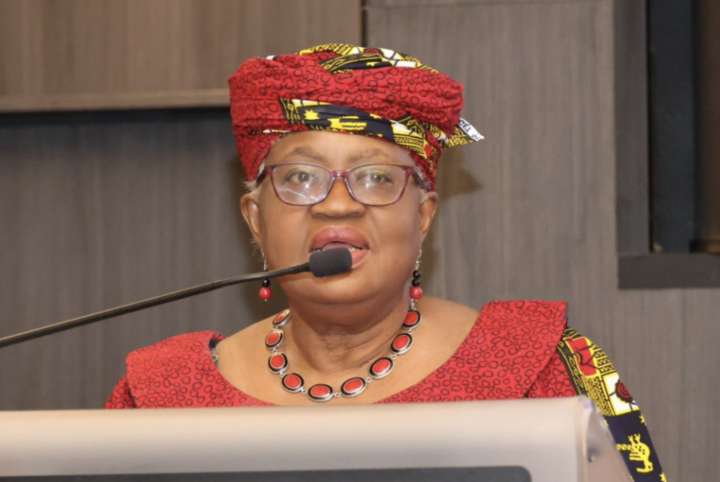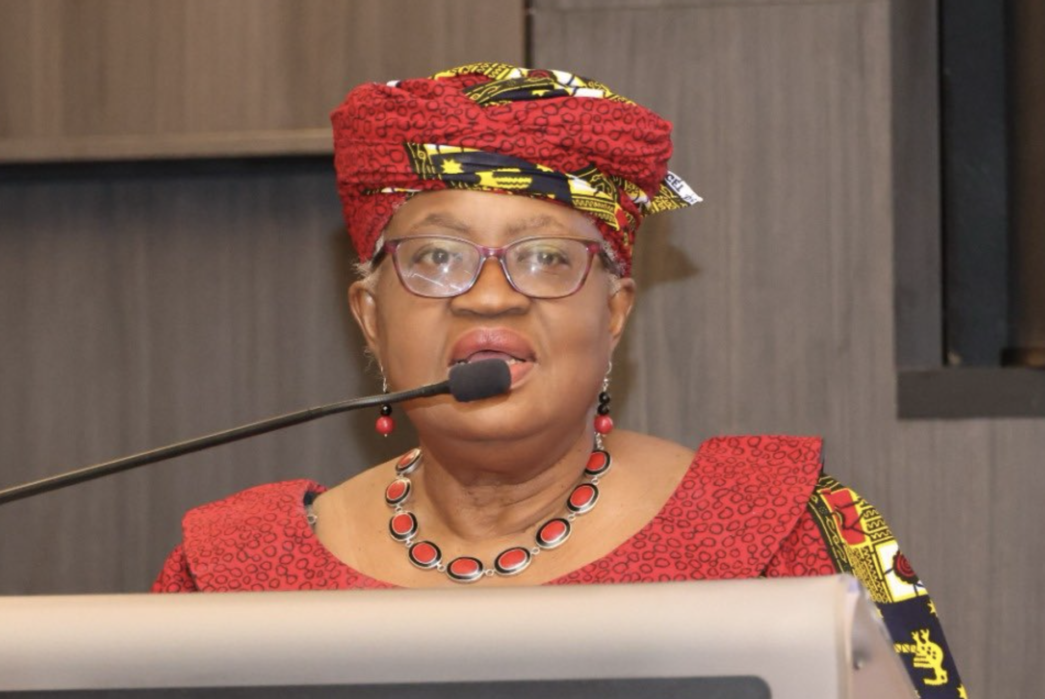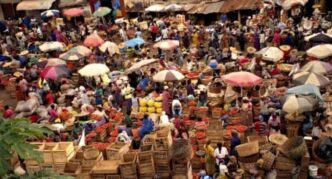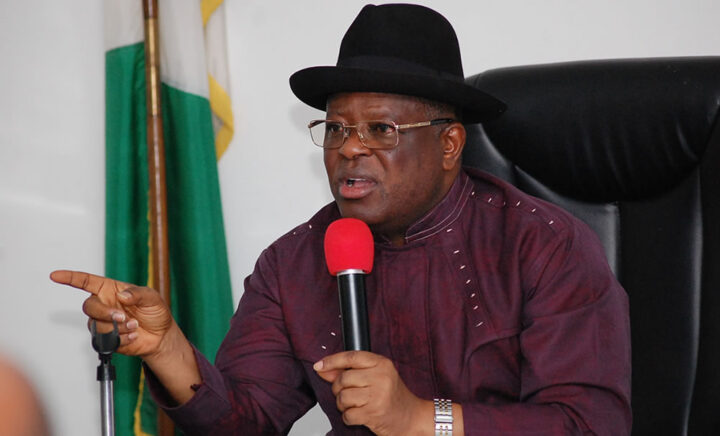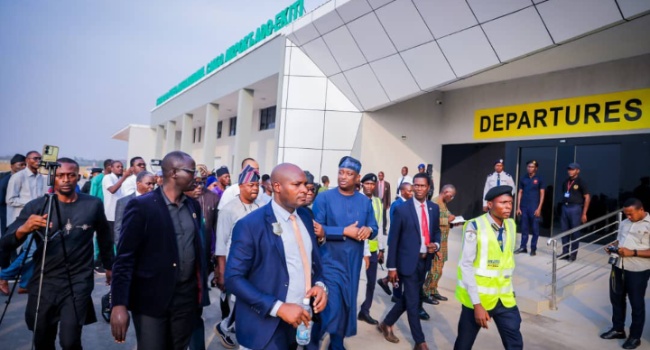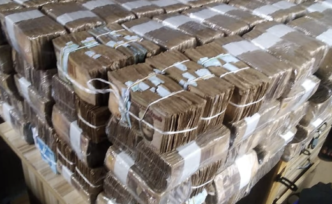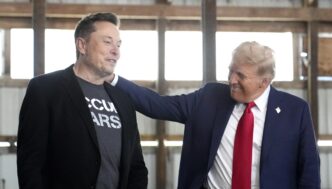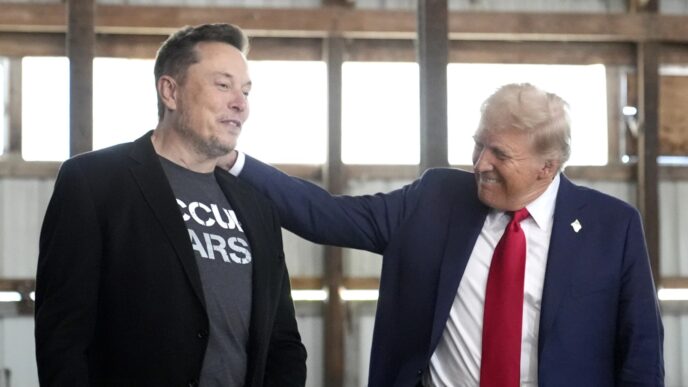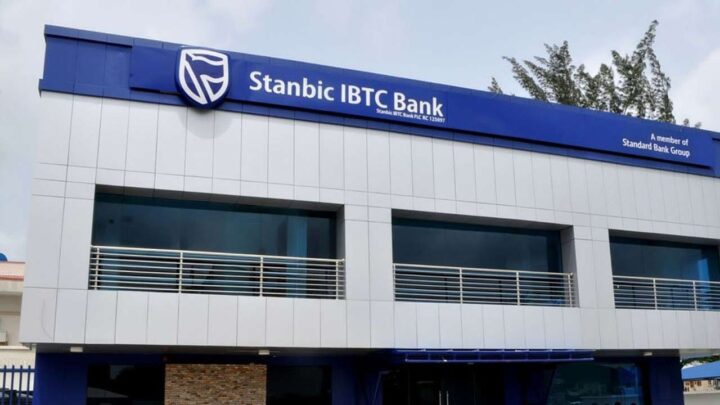Ngozi Okonjo-Iweala, director-general of the World Trade Organisation (WTO), has called for calm over tariff threats by United States (US) President Donald Trump.
On Monday, after his presidential inauguration, Trump threatened to impose 25 percent tariffs on Mexico and Canada for failing to meet US immigration standards by February 1.
At the 2025 World Economic Forum (WEF) in Davos, Switzerland, Okonjo-Iweala addressed the development during a panel discussion held on Tuesday.
Okonjo-Iweala advised WTO members to observe actual policy implementations before reacting, saying calmness is necessary during uncertain developments.
Advertisement
“I’m concerned, but you can see my attitude and approach is keep calm,” she said.
“Let’s see what policies are actually enacted and implemented before we get overexcited.
“That’s the first thing. You know, cautious optimism. I know it’s coming down and the tariffs will be pronounced, but look at what is being done first.
Advertisement
“Everybody thought that by today or tomorrow, we would get, you know, an executive order with 60 percent tariffs or 30 percent and so on.
“So far, we’ve seen the request for a slew of studies and investigations of the various trading partners and various types of trade agreements to see the impact on the United States.
“That’s a bit encouraging in the sense that at the WTO, we say that if you feel another member is forcing you on, the first thing to do is not to wake up and pronounce whatever type of remedy, but to actually investigate, launch a set of studies.
“Now, there’s a deadline for all this, which is April 1st. So let’s see. But the fact that we’re getting that and possibly maybe by the 1st of February, these announcements, I don’t want to sound like I’m naive, but let’s keep calm and see what will actually happen.”
Advertisement
Okonjo-Iweala noted Trump had reached out to China and explored dialogue while announcing the policies.
“Again, there might be something promising in all of that,” she said.
“So yes, we don’t want a tariff war because all the modelling shows that this will not benefit really anyone, the US, the rest of the world.
“It’s going to be inflationary in many cases, past history has shown us. We certainly don’t want a tit-for-tat.”
Advertisement
She reiterated that WTO members must keep calm and wait for investigation outcomes before responding.
‘WTO’S ROLE GOES BEYOND TARIFFS’
Okonjo-Iweala emphasised the WTO’s broader contributions, asking stakeholders not to focus solely on tariff-related issues.
Advertisement
“One, the safety, we are the home of the agreement that guarantees a measure of trust and safety in the food and products that you buy,” she said.
“We have the agreement on sanitary, phytosanitary measures and on product standards.
Advertisement
“So at least there’s a minimum of trust when something is going to a country that it meets certain standards. If you are not at the WTO, you won’t benefit from that.
“Even customs valuation, how you value the goods on which you’re going to put the tariffs. We’re the home of that agreement.
Advertisement
“So beyond tariffs, there’s so much more going on in trade, and I think that this is to the benefit of the world.”
‘80% OF WORLD GOODS TRADE TAKES PLACE ON WTO RULES’
Okonjo-Iweala asked global leaders to protect the rules-based trading system, saying it facilitates 80 percent of global goods trade.
On January 17, the International Monetary Fund (IMF) projected global economic growth would stabilise at 3.3 percent this year and next, aligning with weakened pre-pandemic trends.
The projection shows that inflation is expected to decline to 4.2 percent this year and 3.5 percent next year, allowing policy normalisation.
Reacting, Okonjo-Iweala said the IMF’s improved economic forecast at 3.3 percent remains below the trend of the last decade.
She said various economies grew at differing rates, with the US performing well while Europe struggled with low growth.
“There are four things that I would like to mention we need,” the director-general said.
“The first and foremost is either maintaining or restoring, depending on the economy, macroeconomic stability and good management. And that means inflation that the IMF has shown us is coming down globally.
“Yes, the central bankers have done a good job, but there’s still a lot to do, and many countries are still struggling, and it’s hitting the poor the hardest.
“At the same time, there’s a need for fiscal consolidation in many countries with fiscal deficits getting quite high and debt.
“We heard earlier on the Swiss president talk about high levels of debt in many countries and debt cells. So we still need strong macroeconomic management if we’re to restore growth.
“The second thing is openness and predictability of global markets. Why is that? This has delivered for us, as we heard repeatedly from all three speakers, from President Ursula von der Leyen, President of Switzerland, and from the Vice Premier of China, openness and predictability of trade has delivered.
“And I have to say now that in spite of all the challenges and rising protectionism, our numbers show at the WTO that trade has been largely resilient.
“80 percent, better than the 75 percent we said before of world goods trade, is taking place on WTO’s most favoured nation terms, on WTO rules, I think this is something the world needs to preserve. So it’s delivered, we can deliver again.”
Okonjo-Iweala also called for a reduction in over-dependence on a single source for critical goods.
Add a comment
